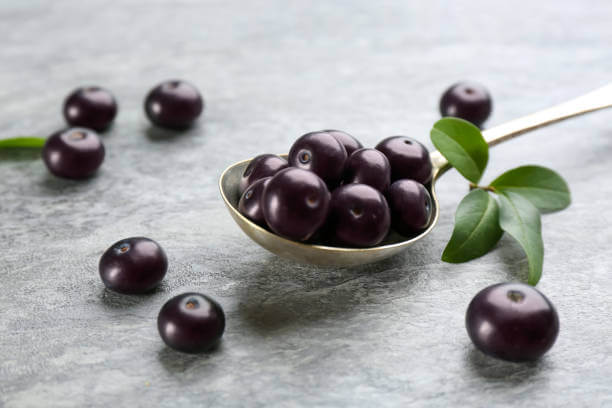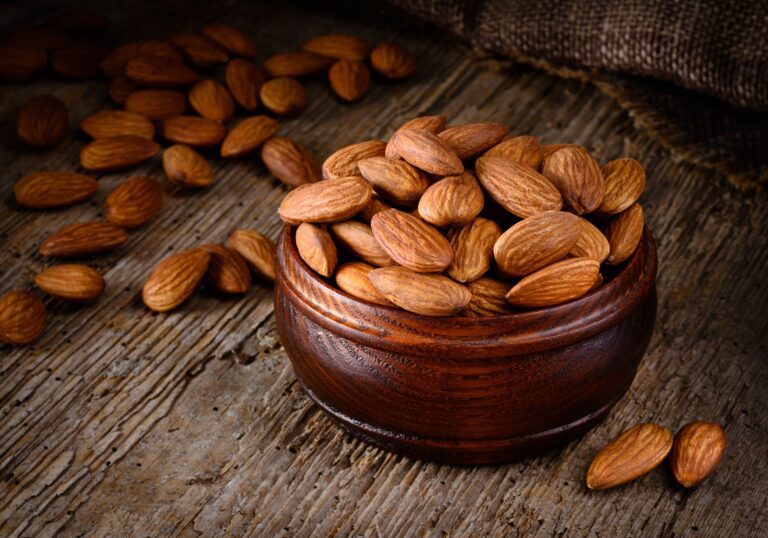7 Powerful Natural Foods That Increase Testosterone Levels

Testosterone is an essential hormone that plays a vital role in the overall well-being of men. This hormone is responsible for regulating muscle mass, bone density, and sex drive. Unfortunately, as men age, their testosterone levels tend to decline, which can lead to a host of health problems. While there are many ways to boost testosterone levels, nutrition is one of the most effective methods. We are going to look at some natural foods that increase testosterone levels. These foods are easily accessible and can be incorporated into your diet with minimal effort.
Whether you want to enhance your athletic performance or maintain overall health, these testosterone-boosting foods are exactly what you need. So, let’s not waste any more time and explore the top natural foods that can assist you in reaching optimal testosterone levels.
Understanding testosterone
Before we dive into the foods that naturally increase testosterone, it’s important to understand its role in the body. Testosterone is a hormone primarily produced in the testes in men and ovaries in women, although it is present in both sexes. It plays a vital role in sexual development, muscle growth, bone density, and overall well-being. Testosterone regulates various bodily functions, including libido, fertility, mood, cognition, and red blood cell production.
Importance of Testosterone for Your Body
Optimal testosterone levels are crucial for maintaining overall health and well-being. In men, testosterone helps maintain muscle mass, bone density and promotes the growth of facial and body hair. It also influences sexual function and sperm production and affects mood regulation.
For women, testosterone contributes to healthy sexual desire, bone strength, and overall energy levels. It also supports muscle tone and plays a role in maintaining cardiovascular health. A significant fluctuation in women’s testosterone levels can damage their health and sexual drive.
Factors Affecting Testosterone Levels
Several factors can impact testosterone levels in both men and women. Understanding these factors can help individuals make informed decisions to maintain or enhance testosterone production. The following are key factors that influence testosterone levels:
Age
Testosterone levels naturally decline with age. After the age of 30, men typically experience a gradual decline in testosterone levels, averaging about 1% per year. This decline can result in various symptoms, such as reduced energy, decreased muscle mass, decreased libido, and mood changes. However, certain lifestyle choices can help slow down this decline.
Lifestyle and Diet
The lifestyle we lead and the foods we consume can significantly impact testosterone levels. A healthy, balanced diet rich in specific nutrients can support testosterone production. On the other hand, poor dietary choices, excessive alcohol consumption, and smoking can adversely affect testosterone levels.
Weight
Regular physical activity and weight management are essential for optimizing testosterone levels. Engaging in resistance training and high-intensity exercises can stimulate testosterone production. Additionally, maintaining a healthy weight and reducing excess body fat can also positively impact testosterone levels.
Sleep and Stress Management
Adequate sleep and effective stress management play a crucial role in maintaining optimal testosterone levels. Lack of sleep and chronic stress can lead to hormonal imbalances, including reduced testosterone production. Therefore, prioritizing quality sleep and adopting stress reduction techniques such as meditation or yoga can be beneficial.
Natural foods that increase testosterone
While various supplements are available in the market, claiming to boost testosterone levels, focusing on natural food sources is always recommended to avoid any adverse effects. Incorporating the following foods into your diet can support healthy testosterone production. Here are foods that naturally increase testosterone levels;
1. Cruciferous
Cruciferous vegetables, such as broccoli, cabbage, cauliflower, and kale, have gained attention for their potential role in testosterone production. While the direct impact of these vegetables on testosterone levels is still being studied, they contain compounds known as glucosinolates, which have shown promise in promoting hormone balance. One particular glucosinolate, indole-3-carbinol (I3C), has been of interest due to its ability to modulate estrogen metabolism.
I3C helps convert estrogen into less potent forms, potentially reducing the overall estrogen load in the body. Since testosterone and estrogen have an inverse relationship, this shift in estrogen metabolism may indirectly support testosterone levels. Moreover, cruciferous vegetables are rich in vitamins, minerals, and fiber, providing a range of nutritional benefits that contribute to overall health and well-being.
2. Ginger
Ginger is a root used for centuries for its medicinal properties. It is known for its anti-inflammatory and antioxidant properties and has been shown to help boost testosterone levels in men. One study found that when men consumed ginger for three months, their testosterone levels increased by 17.7%.
Ginger works by increasing luteinizing hormone (LH) levels in the body, which stimulates the Leydig cells in the testes to produce more testosterone. Moreover, studies have demonstrated that ginger possesses the potential to alleviate inflammation within the body, thus potentially influencing testosterone levels negatively.
3. Garlic
Garlic is a popular ingredient in many cuisines and is known for its health benefits. It is rich in sulfur-containing compounds that have been shown to help boost testosterone levels in men. One study found that men who consumed garlic for three months experienced a significant increase in testosterone levels.
Garlic works by increasing the levels of luteinizing hormone (LH) in the body, which stimulates the Leydig cells in the testes to produce more testosterone. Additionally, garlic has been shown to help reduce inflammation in the body, which can contribute to low testosterone levels.
4. Leafy Greens
Leafy green vegetables such as spinach, Swiss chard, and kale are packed with vitamins and minerals and contain an important nutrient for testosterone production: magnesium. Magnesium is involved in over 300 biochemical reactions in the body, including testosterone production. Research has shown that magnesium supplementation can increase both total and free testosterone levels in men. By including leafy greens in your diet, you can ensure an adequate magnesium intake, which can help maintain optimal testosterone levels.
5. Fatty Fish
Fatty fish, such as salmon, mackerel, and sardines, are not only delicious but also excellent sources of omega-3 fatty acids. These healthy fats are essential for the production of testosterone and have numerous other health benefits. Omega-3 fatty acids help reduce inflammation, improve heart health, and support brain function.
In terms of testosterone production, omega-3 fatty acids have been shown to enhance Leydig cell function, which are the cells responsible for testosterone production in the testes. By incorporating fatty fish into your diet, you can ensure an adequate intake of omega-3 fatty acids, supporting testosterone production and overall well-being.
6. Nuts and Seeds
Nuts and seeds are nutrient powerhouses and can provide various benefits for testosterone production. For instance, almonds, walnuts, flaxseeds, and chia seeds are excellent sources of essential nutrients like zinc, magnesium, and healthy fats. Zinc is a crucial mineral for testosterone production as it plays a role in the hormone synthesis. Magnesium, as mentioned earlier, also contributes to testosterone production.
The healthy fats found in nuts and seeds are important for maintaining optimal hormone levels. Including a variety of nuts and seeds in your diet can provide a combination of these essential nutrients, supporting testosterone production.
7. Eggs
Eggs are a highly nutritious food that can contribute to testosterone production in multiple ways. Eggs are an excellent vitamin D source, a vital nutrient for testosterone synthesis. Studies have shown a positive correlation between men’s vitamin D levels and testosterone levels.
Eggs are rich in high-quality protein, which is important for muscle development and hormone production. Lastly, eggs contain cholesterol, which serves as a precursor for testosterone production. Contrary to popular belief, the cholesterol in eggs does not significantly affect blood cholesterol levels in most individuals and can be safely consumed as part of a balanced diet.
Other natural testosterone-boosting foods
In addition to broccoli, ginger, and garlic, there are many other natural foods that can help boost testosterone levels in men. These include:
- Pomegranate – Pomegranate is a fruit rich in antioxidants and can stimulate testosterone production. It also has other health benefits, such as improving cardiovascular health.
- Onions – Onions are known for their aphrodisiac properties and can boost testosterone levels. They also provide other health benefits, such as supporting heart health.
- Olive Oil – Olive oil is a healthy fat that can promote testosterone production. Including it in your diet as cooking oil or dressing can positively affect your hormone levels.
- Avocado – Avocado is a nutrient-dense fruit that provides healthy fats, fiber, and vitamin K. These components can support testosterone production and overall health.
- Berries – Berries like strawberries, blueberries, and raspberries are rich in antioxidants and can support testosterone production.
- Brazil Nuts – Brazil nuts are an excellent source of selenium, a mineral that plays a role in testosterone production. Consuming a few Brazil nuts daily can provide this essential nutrient.
- Tuna – Tuna is a fish rich in vitamin D, omega-3 fatty acids, and protein. These nutrients are beneficial for testosterone production and overall health.
- Oysters – Oysters are well-known as an aphrodisiac and are rich in zinc, which is crucial for testosterone production. Including oysters in your diet occasionally can provide this important mineral.
It’s important to note that while these dietary factors can support testosterone production, they may not single-handedly cause dramatic changes in hormone levels. Various factors influence testosterone production, including genetics, age, overall health, and lifestyle choices. Nonetheless, incorporating these foods into a balanced diet can contribute to overall well-being and help maintain optimal testosterone levels. As with any dietary changes, it’s always best to consult a healthcare professional or registered dietitian for personalized advice.
Habits on How to Naturally Increase Testosterone
In addition to incorporating testosterone-boosting foods, certain lifestyle changes can further support healthy testosterone levels. Consider the following:
Regular Exercise
Engage in regular physical activity, including both cardiovascular exercises and strength training. Aim for at least 150 minutes of moderate-intensity exercise per week and two or more days of strength training.
Weight Management
Maintain a healthy weight and reduce excess body fat, as obesity is associated with lower testosterone levels. Adopting a well-balanced diet, portion control, and regular exercise can help achieve and maintain a healthy weight.
Quality Sleep
Prioritize getting enough sleep and establish a consistent sleep routine. Aim for 7-9 hours of sleep each night to support hormone balance and overall well-being.
Stress Reduction Techniques
Find effective ways to manage stress, such as practicing mindfulness meditation, deep breathing exercises, or engaging in hobbies or activities that bring joy and relaxation.
Avoiding Harmful Substances
Limit or avoid the consumption of excessive alcohol, smoking, and illicit drugs, as they can negatively impact testosterone production.
FAQs
- Can natural foods really increase testosterone levels? Yes, certain natural foods can support testosterone production and help maintain optimal hormone levels. Incorporating these foods into your diet, along with other lifestyle changes, can have a positive impact on testosterone levels.
- How long does it take to see results from dietary changes? The timeframe for seeing results from dietary changes can vary among individuals. It is important to adopt a long-term approach to dietary changes and make them a part of your lifestyle. Consistency is key, and results may vary based on factors such as overall health, age, and adherence to dietary changes.
- Are there any side effects of consuming testosterone-boosting foods? Generally, consuming testosterone-boosting foods does not have significant side effects when consumed as part of a balanced diet. However, it is always advisable to listen to your body and consult a healthcare professional if you have any concerns or specific health conditions.
- Can women benefit from consuming these foods too? Yes, women can also benefit from consuming testosterone-boosting foods. Testosterone plays a crucial role in female health, including libido, bone density, and overall energy levels. However, it is important to note that women naturally have lower testosterone levels than men.
- Should I consult a doctor before making dietary changes? Yes, if you have any underlying health conditions or concerns about your hormone levels, it is always recommended to consult a healthcare professional. They can provide personalized advice and guidance based on your specific needs and help you make informed decisions about dietary changes.
Bottom Line
Maintaining a balanced hormone level is essential for overall health and well-being. Incorporating necessary natural foods such as broccoli, ginger, garlic, eggs, almonds, spinach, mushrooms, and cruciferous vegetables into your diet can help boost testosterone levels, promoting optimal hormone balance.
These natural foods are easily accessible and can be incorporated into your diet with minimal effort. Whether you want to improve your athletic performance or maintain your overall health, these testosterone-boosting foods are sure to do the trick. So, start incorporating these natural foods into your diet today and reap the benefits of balanced hormones.






